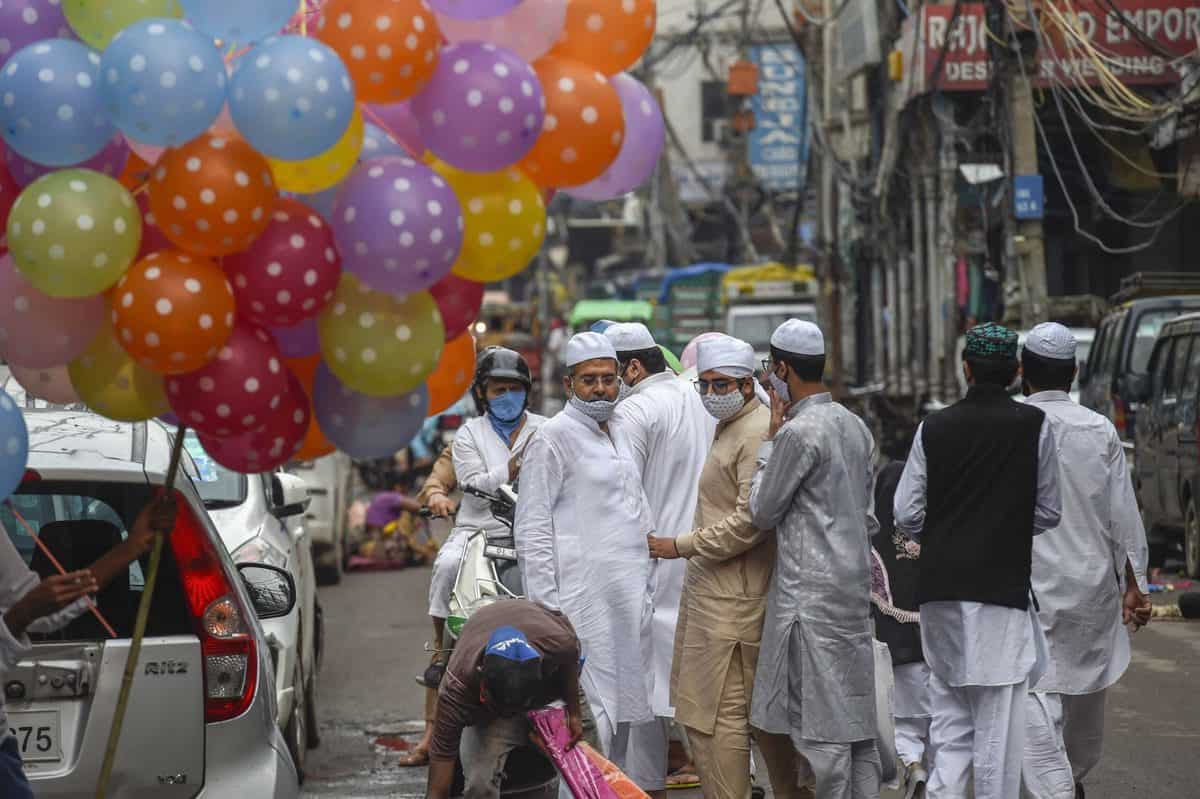Amidst the new literature that has emerged on the condition of Muslims in New India, is a recent book titled Born a Muslim. Written for all Indians who care about India and its future, the book takes a journalistic journey across centuries, unraveling the various ways in which Islam grew, reached India and defined a certain political identity that now is under severe threat. At a book discussion organised recently in Hyderabad the author Ghazala Wahab spoke about her reasons for writing this book. The discussant panel comprised Amitabh Kundu , Tanweer Fazal, Ipsita Sapra, Zafar Anjum and Ruha Shadab, a mix of eminent academics and young public intellectuals.
Wahab reiterates the all so familiar plot of Muslims being outsiders that gained momentum post the partition in 1947 and have continued to evolve with each communal riot and hate crime. Muslims who decided to stay back in India post the creation of Pakistan were cast as the ‘other’ and subject to suspicion. This narrative of the ‘baharwaley’ has made Indian Muslims vulnerable to hate crimes, prejudices, and the constant need to prove their loyalty to the nation.
This entrenched belief has now shifted to the notion of Hindu victimhood, occupying the centre stage of populist politics. The portrayal of Muslim rulers as historical oppressors of Indian land, economy and the Hindu Population has garnered much support through fake stories and concocted theories. Between defending the charges of being outsiders and accusations of victimising Hindus, the Muslim community can now be seen categorized clearly into two significant buckets. On the one hand, there is the Muslim stereotype that exists in all popular literature, the version that wears a particular kind of clothes, eats biryani and produces many children. While on the other side, the vast majority of mainstream Muslims, who cannot be differentiated on the basis of their identity, do exist, but their depiction is virtually absent or minimal. There needs to be engagement with this section so that the clichéd identity of Muslims is not cemented further.
Wahab believes Muslims can work towards empowerment through education, gaining better access to hone their intellectual capacities. Non-Muslims also need to let go of their historical baggage, ensure their children do not carry those biases. As more and more Muslims become assertive, even the educated Hindus continue to look at the past. For an emerging economy such as India, burdens of the past have become an obstruction to inclusive development.
An aspect that has contributed to the community’s downfall has been the ambivalence of Muslims towards secular education; the confinement to religious ideas impacted intellectual development, especially of the socio-economically weaker Muslims. The upward mobility of lower-class Muslims created a group that increasingly tended to clutch on to the clergy in a bid to balance between religion and education. This class of people increasingly join the ranks of organisations that believed in making Muslims behave in a certain religious manner. Not surprisingly, they are the most vulnerable and hence need to be reached out to.
Ipsita Sapra highlighted how stereotypes of Islamic terrorism, population and polygamy have become synonymous with the identity of a Muslim, hence the need to mainstream the counter-narrative. There is a body of evidence regarding terrorism or population that can dispel popular myths about Muslims. She also affirms the hope that the new vistas of solidarity are beginning to emerge . The anti-CAA protests have mobilised the non-Muslims, transgender and women. The farm protests have been an exemplar of solidarity that is spreading. The engagement with youth needs to be built around such mobilisation.
Tanweer Fazal opined that minorities are seen as a force against homogenisation, hence the ‘otherisation’ complex is inevitable in majoritarian countries. Islamophobia, bigotry and fundamentalism are natural progressions of this idea. Muslims have figured as the prominent other, hence the agenda of denationalisation is befitting. This is something that Dalits or Scheduled tribes do not face. On the one hand, Muslims are targeted by law enforcement agencies, while on the other, they are languishing in poverty, illiteracy, and unemployment. Ruha Shadab emphasized the role of women, of entrepreneurship and the challenges that minority women faced when battling all odds alone. Getting them together, on a common platform would help them realise their immense potential
Amitabh Kundu has consistently been of the opinion that the Indian Muslim faces a crisis in secondary and higher education. Also in access to healthcare, despite showing relatively better health outcomes than other socio economic categories. Kundu’s suggestions for India’s future growth is by way of an inclusive economic development strategy that does not leave behind anyone. He sees hope by way of an increasing interaction between people and through the new writing that has emerged today, where these new intrepid voices are raining difficult questions and gathering attention over issues that need our attention in making the idea of an inclusive India possible.
In his ‘Civilization on Trials’, Arnold Toynbee wrote that a society develops into a civilization when it is confronted with a challenge that it successfully meets in such a way as to lead it on to further challenges. Toynbee believed that the concepts and methods for meeting the trials for society come from a creative minority. Civilizations declined when their leaders were unable to find creative solutions, and the civilizations turned to rubble with the ‘sins of nationalism, militarism, and the tyranny of a despotic minority ’. Born a Muslim is an attempt to look for solutions, even as its raises all the relevant questions that need to be asked from an India in transition.
Amir Ullah Khan and Nahia Hussain are researchers at Centre for Development Policy and Practice (CDPP) based in Hyderabad.

